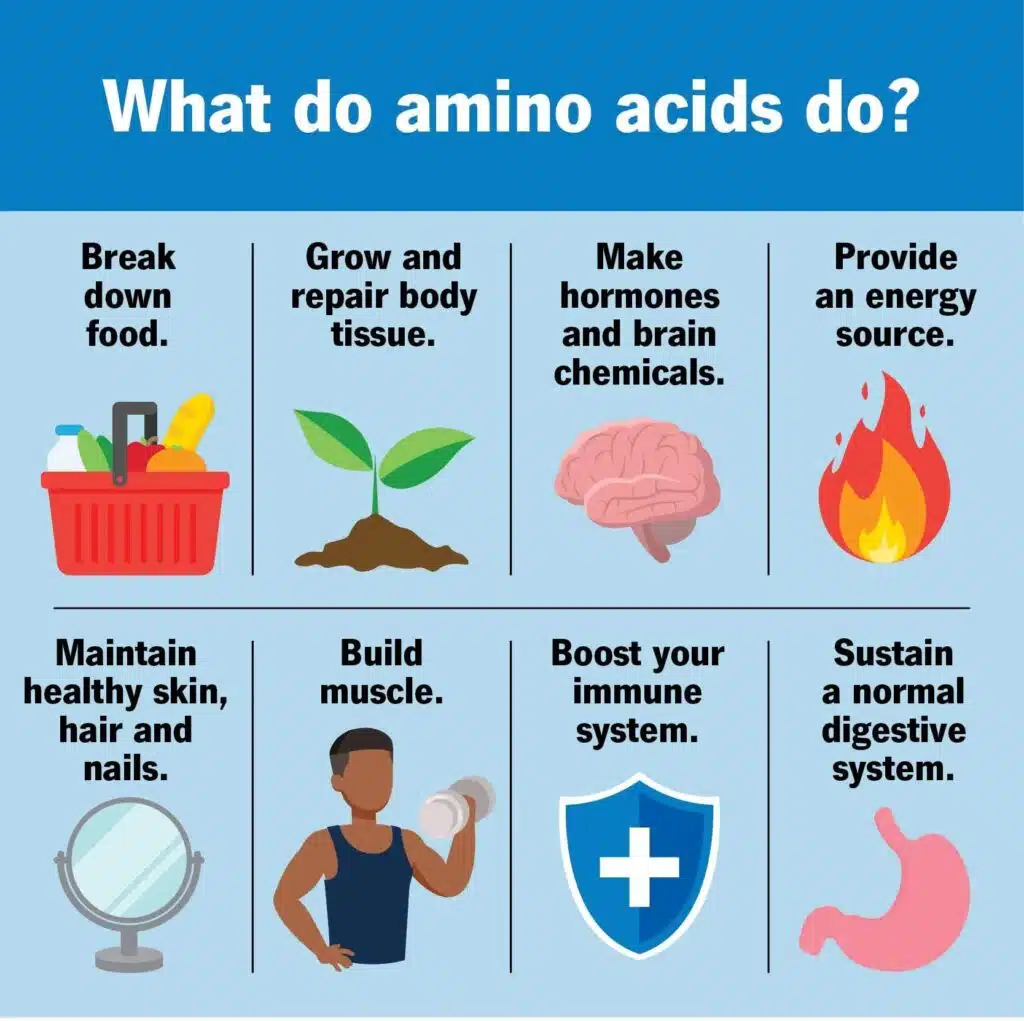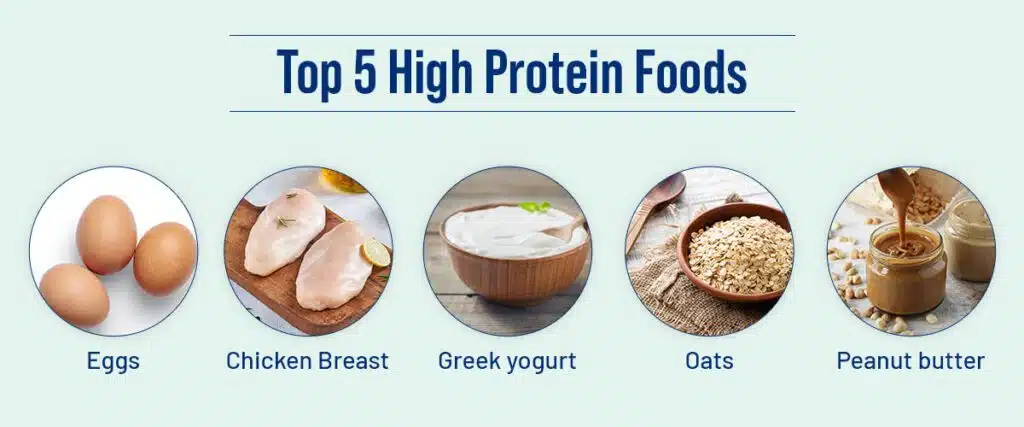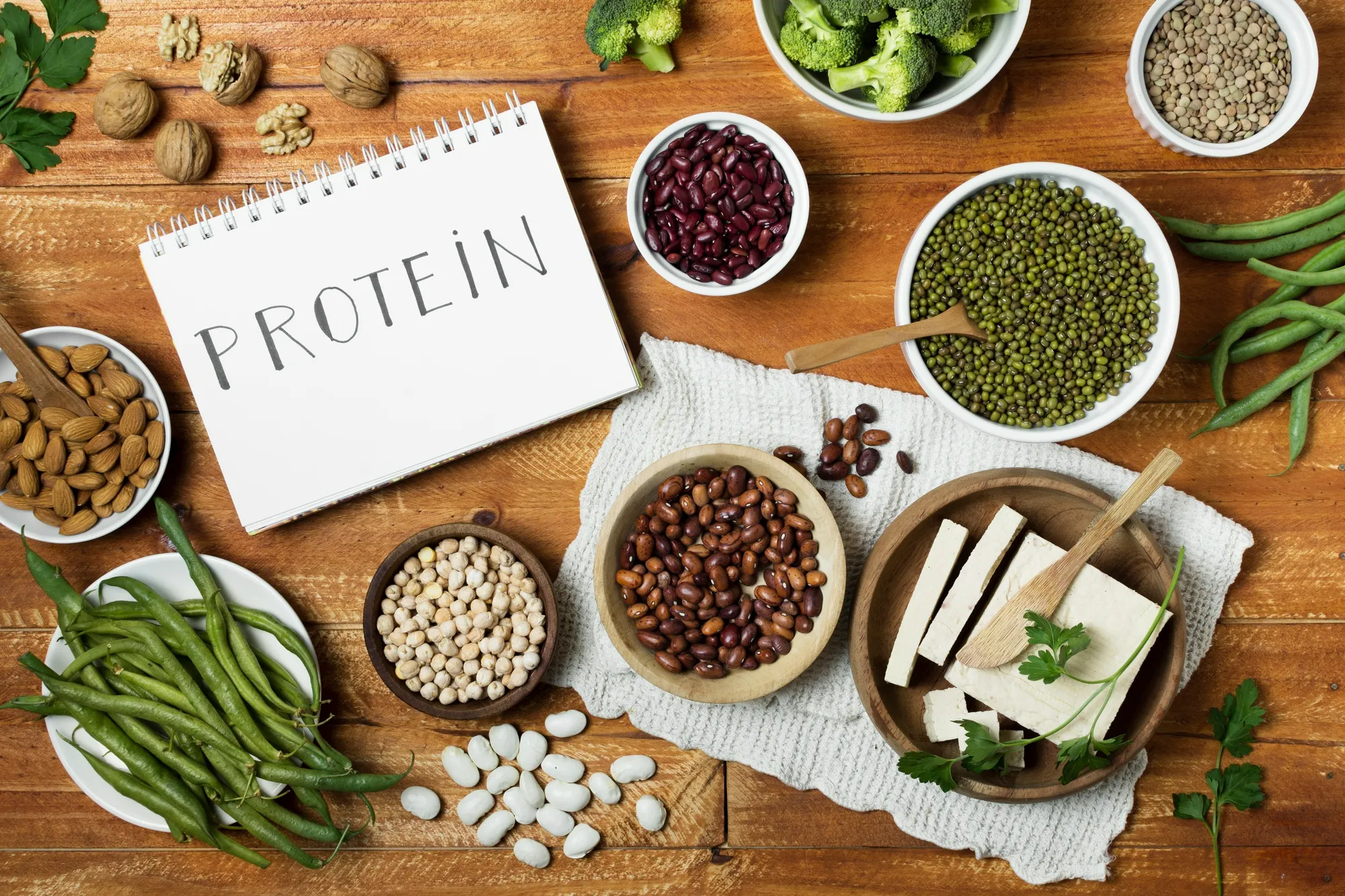- 1-What Are Proteins Made of? The Building Blocks of Life
- 2-Types of Protein: Complete vs. Incomplete Proteins
- 3-Protein Synthesis: How Your Body Builds Muscle and Repairs Itself
- 4-Top Sources of Protein: From Whole Foods to Supplements
- 5-Protein’s Role in Fitness and Muscle Growth
- 6-Protein for Weight Loss: Boost Metabolism and Stay Fuller Longer
- 7-Protein and Metabolic Health
- 8-Protein and Healthy Aging: Preserving Muscle Mass and Longevity
- 9-Protein and Gut Health: Supporting Digestion with Protein
- 10-The Role of Protein in Hormonal Balance: Supporting Optimal Health
- 11-Protein Timing: When to Eat Protein for Maximum Muscle Growth and Recovery
- 12-Personalized Protein: How to Tailor Your Protein Intake to Your Body’s Needs
- 13-How Much Protein Do You Really Need?
- Conclusion: Fuel Your Body with Protein Power
Protein is more than just a macronutrient—it’s the foundation of life. From muscle growth to metabolism, protein drives the essential functions that keep our bodies strong and healthy. But what are the building blocks of protein, and how can you leverage them to fuel your fitness, optimize weight loss, and improve overall health? Let’s dive into how amino acids—the building blocks of protein—are key to unlocking your body’s full potential.
1-What Are Proteins Made of? The Building Blocks of Life
At the core of every protein are amino acids (the foundation of all proteins), the building blocks of life. Your body needs all 20 amino acids, especially the 9 essential amino acids found in protein-rich foods. These 20 unique amino acids combine in countless ways to form different proteins, each with its specific function.
Non-essential amino acids are produced by the body, but including them in your diet can still enhance overall health and support muscle recovery. The human body uses these building blocks to build muscles, repair tissues, create enzymes, and support your immune system.
Consulting an amino acids chart alongside understanding the amino acid structure can provide valuable insights into optimizing your protein intake for better performance and recovery.

Among these, essential amino acids (which your body can’t produce) must come from your diet, found in foods like eggs, chicken, tofu, and legumes. Without them, your body can’t produce the proteins it needs to function properly.
2-Types of Protein: Complete vs. Incomplete Proteins
Understanding the difference between complete and incomplete proteins is essential when choosing your protein sources. Complete proteins contain all nine essential amino acids that your body needs to function optimally. These are found primarily in animal-based products such as meat, fish, eggs, and dairy. On the other hand, many plant-based proteins (e.g., beans, lentils, and grains) are considered incomplete proteins, meaning they lack one or more of the essential amino acids.
However, this doesn’t mean plant-based eaters can’t get all the amino acids they need. By combining various plant-based foods, such as beans with rice, you can create a complete protein profile.
Additionally, some plant-based proteins, like quinoa and soy, are naturally complete, making them excellent options for vegetarians and vegans looking to meet their protein requirements.
3-Protein Synthesis: How Your Body Builds Muscle and Repairs Itself
The magic happens during protein synthesis—the process by which your body turns the amino acids from your food into muscle, enzymes, and hormones. Think of it as your body’s construction site: after you eat protein, your cells use ribosomes (tiny protein factories) to assemble amino acids into the precise sequence needed for specific functions.
This process is critical for muscle repair and growth, especially after exercise. Whether you’re lifting weights or running marathons, your muscles rely on protein synthesis to heal and grow stronger.
4-Top Sources of Protein: From Whole Foods to Supplements
Start by filling your plate with protein-rich foods to meet your daily protein needs. Animal-based sources like chicken, beef, eggs, and fish are excellent because they provide all 9 essential amino acids. Plant-based options, such as quinoa, tofu, lentils, and chickpeas, also pack a punch.
If you’re on the go or need a quick boost, protein powders like whey, casein, or plant-based powders (pea, hemp, or soy) are great options. They help you hit your protein goals without needing bulky meals, especially post-workout.
5-Protein’s Role in Fitness and Muscle Growth
For anyone looking to build muscle or get stronger, protein is essential. Consuming protein before and after workouts supports muscle recovery and fuels muscle synthesis, making it easier to achieve those strength goals. The ideal protein intake for muscle growth ranges from 1.2 to 2 grams per kilogram of body weight daily.
To maximize muscle recovery, many athletes turn to whey protein—a fast-digesting option that delivers essential amino acids quickly to muscles. But remember: carbs are equally important post-workout. Pair your protein shake with fruit or oats for the perfect recovery boost.
6-Protein for Weight Loss: Boost Metabolism and Stay Fuller Longer
If you’re trying to lose weight, protein can be your secret weapon. With slight variation, protein powder for weight loss, not only helps build muscle, which boosts your metabolism, but it also promotes satiety—keeping you fuller for longer. This can reduce overall calorie intake, helping with weight management.
Studies show that high-protein diets (HPDs) lead to greater fat loss and improved metabolic health. Foods like lean meats, fish, and legumes are low in calories but high in protein, making them perfect for fat-burning diets.
7-Protein and Metabolic Health
How Protein Supports Blood Sugar Regulation and Insulin Sensitivity
In addition to building muscle and aiding in weight loss, protein also plays a crucial role in metabolic health. It can positively affect blood sugar regulation, improve insulin sensitivity, and reduce the risk of metabolic disorders like type 2 diabetes. Unlike carbohydrates, which can cause spikes in blood sugar levels, protein has a stabilizing effect, promoting slower digestion and preventing energy crashes.
Research has shown that diets higher in lean protein and lower in refined carbs can improve overall glycemic control. This makes protein an essential nutrient for those managing blood sugar levels or at risk of developing insulin resistance.
Combining high-protein diets with foods rich in fiber and healthy fats creates a balanced approach to managing metabolic health. Lean proteins like chicken, turkey, and fish, and plant-based proteins like lentils and quinoa should be staples in a diet aimed at improving blood sugar regulation.
8-Protein and Healthy Aging: Preserving Muscle Mass and Longevity
As we age, maintaining adequate protein intake becomes even more critical. Sarcopenia, the gradual loss of muscle mass due to aging, can lead to decreased strength, mobility issues, and an increased risk of falls and fractures. To combat this, older adults should focus on increasing their protein intake to support muscle maintenance and healthy aging.
Protein-rich foods combined with resistance training can help preserve muscle mass and strength as we get older. Aiming for around 1.2 grams of protein per kilogram of body weight daily can support healthy aging and reduce the risk of muscle degradation. It’s equally important to choose high-quality protein sources, such as lean meats, eggs, dairy, and protein-rich plant foods like lentils, chickpeas, and tofu.
Furthermore, protein supports the maintenance of bone density, which also tends to decline with age. Adequate protein, combined with calcium and vitamin D intake, can play a pivotal role in maintaining strong bones and preventing osteoporosis.
9-Protein and Gut Health: Supporting Digestion with Protein
There’s a strong connection between protein intake and gut health. Proteins play a role in feeding the beneficial bacteria in your gut, supporting a healthy gut microbiome. Certain amino acids benefit dynamically, such as glutamine, which is essential for maintaining the integrity of the gut lining and promoting overall digestive health.
While protein is beneficial for the gut, it’s important to balance your intake with fiber-rich foods to avoid digestive discomfort. Pairing high-protein meals with vegetables, whole grains, and fermented foods can help maintain a healthy gut environment and prevent issues like bloating or constipation.
Incorporating a variety of protein sources, including both animal-based and plant-based proteins, helps ensure a well-rounded diet that supports both muscle health and digestion.
10-The Role of Protein in Hormonal Balance: Supporting Optimal Health
Protein isn’t just about muscle growth and metabolism—it also plays a key role in maintaining hormonal balance. Hormones are chemical messengers that regulate everything from metabolism and mood to reproductive health. Many of these hormones, like insulin, growth hormone, and glucagon, are made up of amino acids, the building blocks of protein.
For instance, insulin, which controls blood sugar levels, is a protein-based hormone. Adequate protein intake helps support stable blood sugar and insulin sensitivity, preventing issues like insulin resistance. Likewise, proteins are essential for producing thyroid hormones, which regulate metabolism, and growth hormones, which are involved in tissue repair and muscle growth.
Collagen and elastin are proteins made up of specific amino acids, such as glycine and proline, which play a crucial role in maintaining skin elasticity, joint health, and overall tissue strength.
Moreover, dietary protein has been shown to positively impact leptin and ghrelin—the hormones responsible for hunger and satiety. Eating sufficient protein helps you feel fuller for longer, which can aid in appetite regulation and prevent overeating.
Balancing your protein intake with healthy fats and carbohydrates also supports optimal hormonal function, ensuring that your body has the necessary resources to create and regulate these critical messengers. By understanding the Building Blocks of Protein, you can optimize your diet to include high-quality protein sources that support everything from metabolism to hormone regulation.
11-Protein Timing: When to Eat Protein for Maximum Muscle Growth and Recovery
Eating protein at the right time is as important as how much you consume. For muscle growth and recovery, timing your protein intake around workouts can optimize the body’s ability to use amino acids for muscle synthesis. Consuming protein within 30 to 60 minutes after a workout provides the muscles with the building blocks they need to repair and grow.
Additionally, spreading protein intake throughout the day is more effective than consuming large amounts in one meal. Research suggests that having 20-30 grams of protein per meal spread evenly across breakfast, lunch, and dinner, leads to better muscle protein synthesis than concentrating protein intake in a single meal.
Casein protein, a slow-digesting option, can be beneficial when consumed before bed, as it continues to release amino acids throughout the night, promoting muscle repair while you sleep.
12-Personalized Protein: How to Tailor Your Protein Intake to Your Body’s Needs
Your protein needs aren’t one-size-fits-all. Factors such as your activity level, age, weight, and fitness goals all influence how much protein you should be eating daily. For those engaging in intense physical activity or strength training, higher protein intake is essential to support muscle repair and growth. Aim for 1.6 to 2 grams of protein per kilogram of body weight to maximize muscle synthesis.

If your goal is weight loss, you can slightly reduce calorie intake but maintain high protein levels to preserve muscle mass and promote fat loss. Meanwhile, individuals with lower activity levels may require less protein, but maintaining a balanced diet that includes sufficient protein is still essential for overall health.
For vegetarians and vegans, protein intake can require more careful planning to ensure you’re getting enough complete proteins. Combining plant-based sources or opting for plant-based protein powders can help meet your daily protein needs without relying on animal products.
13-How Much Protein Do You Really Need?
The optimal protein intake depends on your goals. Aim for around 0.8 grams per kilogram of body weight for general health. If you’re active or looking to build muscle, increase this to 1.2-2 grams per kilogram.
For weight loss, prioritize high-quality protein sources and spread your intake evenly across meals. This helps stabilize blood sugar and maintain muscle mass during fat loss.
Conclusion: Fuel Your Body with Protein Power
By understanding the building blocks of protein, you unlock the potential to fuel your workouts, build muscle, support weight loss, and enhance overall health. Incorporate amino acid-rich foods into your diet, balance protein with carbs for muscle recovery, and prioritize quality over quantity.
Start today by adding protein-packed meals like lean meats, eggs, legumes, or shakes to your daily routine, and watch your body transform from the inside out.











